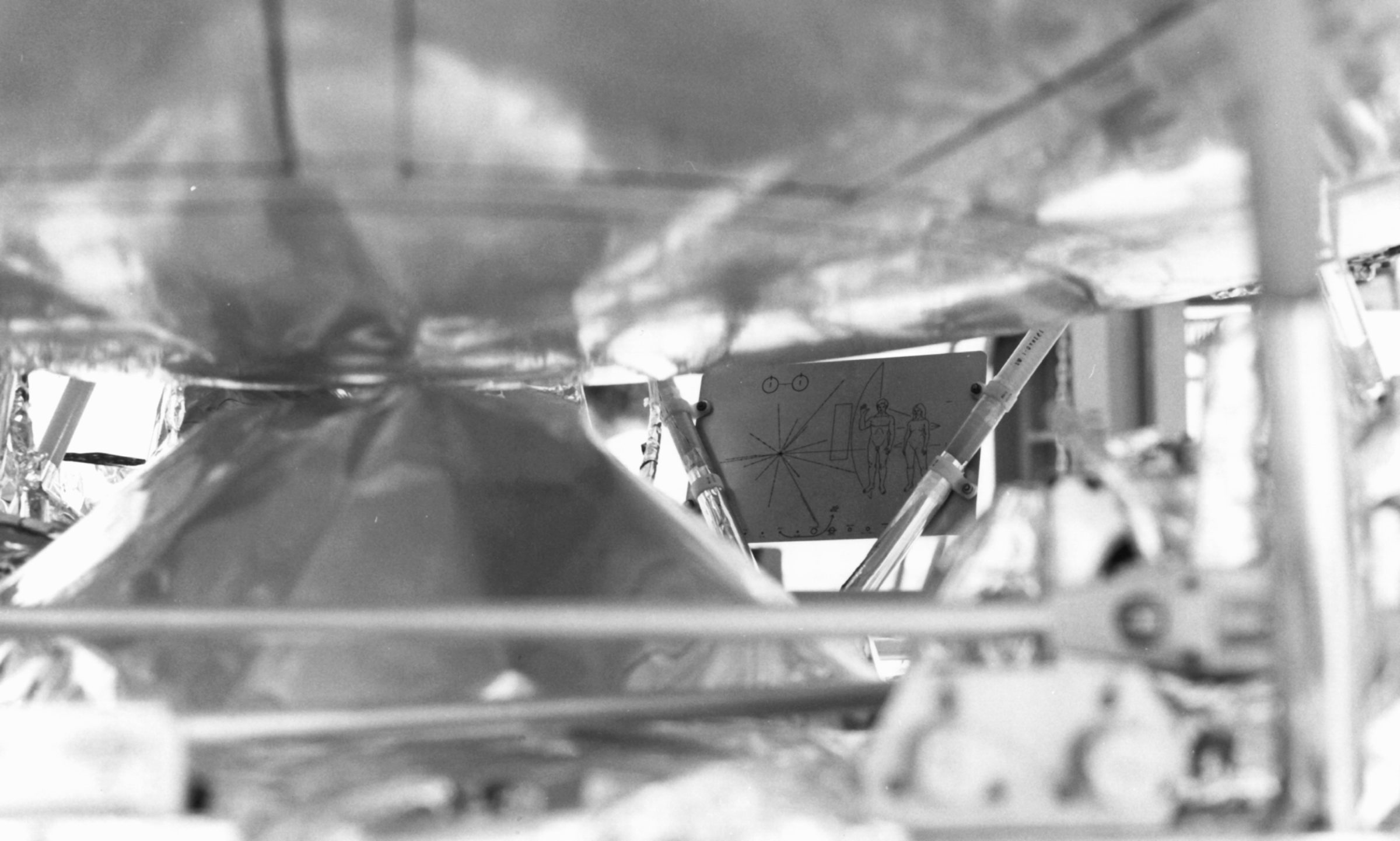Bruce Murray Space Image Library
Pioneer Plaque
The Pioneer F spacecraft, destined to be the first man made object to escape from the solar system into interstellar space, carries this pictorial plaque. It is designed to show scientifically educated inhabitants of some other star system, who might intercept it millions of years from now, when Pioneer was launched, from where, and by what kind of beings. (Hopefully, any aliens reading the plaque will not use this knowledge to immediately invade Earth.) The design is etched into a 6 inch by 9 inch gold-anodized aluminum plate, attached to the spacecraft's attenna support struts in a position to help shield it from erosion by interstellar dust. The radiating lines at left represents the positions of 14 pulsars, a cosmic source of radio energy, arranged to indicate our sun as the home star of our civilization. The "1-" symbols at the ends of the lines are binary numbers that represent the frequencies of these pulsars at the time of launch of Pioneer F relative of that to the hydrogen atom shown at the upper left with a "1" unity symbol. The hydrogen atom is thus used as a "universal clock," and the regular decrease in the frequencies of the pulsars will enable another civilization to determine the time that has elapsed since Pioneer F was launched. The hydrogen is also used as a "universal yardstick" for sizing the human figures and outline of the spacecraft shown on the right. The hydrogen wavelength, about 8 inches, multiplied by the binary number representing "8" shown next to the woman gives her height, 64 inches. The figures represent the type of creature that created Pioneer. The man's hand is raised in a gesture of good will. Across the bottom are the planets, ranging outward from the Sun, with the spacecraft trajectory arching away from Earth, passing Mars, and swinging by Jupiter.


 Explore Worlds
Explore Worlds Find Life
Find Life Defend Earth
Defend Earth


